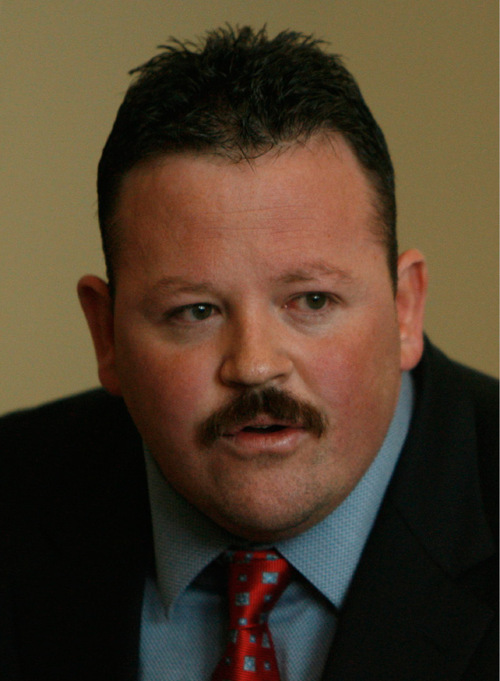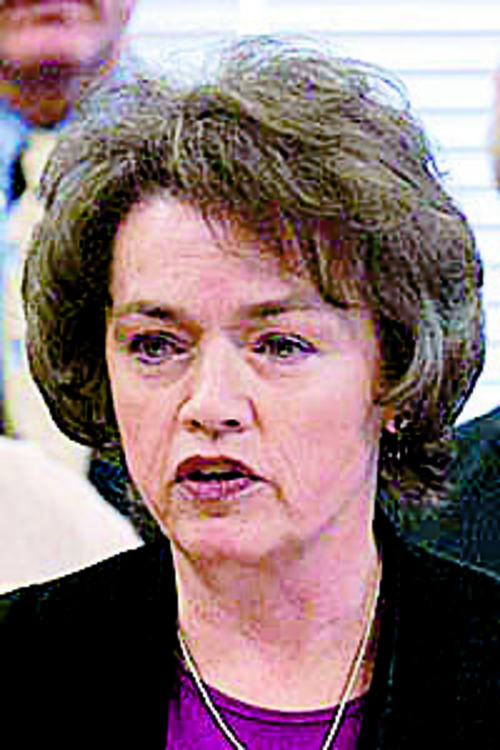This is an archived article that was published on sltrib.com in 2010, and information in the article may be outdated. It is provided only for personal research purposes and may not be reprinted.
A controversial push to ban any form of preferential treatment in Utah based on race, gender or ethnicity will be back before the Legislature next year, when Republican gains in the body will make it almost certain to pass.
"I would say it's very safe to assume that the bill will be brought back this session," said Rep. Carl Wimmer, R-Herriman. "There's no reason we shouldn't bring it back up and push it forward. I think an overwhelming majority of the public would support it."
Sen. Margaret Dayton, R-Orem, is expected to sponsor the proposed amendment to the Utah Constitution, backed by the American Civil Rights Institute, a national organization that has fought against affirmative action in California, Michigan, Washington and Nebraska. Earlier this month, Arizona voters approved a similar amendment to their state's constitution.
Last year, Rep. Curt Oda's bid to amend the constitution fell short by just a vote in the House, supporters said, as unanimous Democrats and a handful of moderate Republicans blocked the measure.
But Republicans gained five Democratic seats in last week's election, and some Republicans who opposed the amendment are retiring or have been replaced by more conservative legislators.
"There are close votes or issues that [Democrats losing seats] will have an impact on, and I think this is one of them, but by no means do I think it's a done deal that they're going to pass," said House Minority Leader David Litvack, D-Salt Lake City.
If the proposed amendment receives the required two-thirds vote from both the House and Senate, it would be put on the ballot for voter approval during the 2012 election, which gives supporters some time to get the resolution approved.
Dayton declined to comment on the amendment, and Oda did not return messages left on his cell phone.
The amendment, as it was proposed last year, would specifically prohibit state agencies, public universities, and cities, towns and local districts from granting any preferential treatment based on race, sex, color, ethnicity or national origin.
Utah law and state departmental policies already prohibit preferential treatment on those grounds.
Meantime, the Constitutional Revision Commission, a panel of lawyers, legislators and former judges, decided to study the proposed change.
The chairman of the commission, retired Judge Jon Memmott, who has studied affirmative action extensively, said the impact of the proposed amendment could be "enormous." There are federal policies, he said earlier this year, regarding affirmative action in employment, college enrollment and athletics that could be affected by the amendment.
The constitutional-amendment effort cropped up suddenly last session, unveiled on a Wednesday, rushed before a committee Thursday morning and advanced to the House floor the next day, where it stalled as supporters were unable to round up the key swing votes.
On Monday, Oda, Dayton and Ward Connerly, the head of the American Civil Rights Institute, will participate in a panel discussion on the proposed amendment at Calvary Baptist Church, sponsored by the Black Advisory Council at the state Office of Black Affairs.
Litvack and attorney Mary Deiss Brown will argue against the proposed amendment. Several other legislators, including House Speaker-elect Rebecca Lockhart, are also expected to attend.
Affirmative action discussion:
Opposing sides of a proposal to amend Utah's Constitution to ban affirmative action in the state will meet Monday to debate the issue.
When: Nov. 15, 6 p.m. to 7:30 p.m.
Where: Calvary Baptist Church gymnasium, 1090 S. State St., Salt Lake City
Opposed:
Rep. David Litvack and attorney Mary Deiss Brown
In favor:
Rep. Curt Oda; Ward Connerly, president of the American Civil Rights Institute; and Sen. Margaret Dayton.





